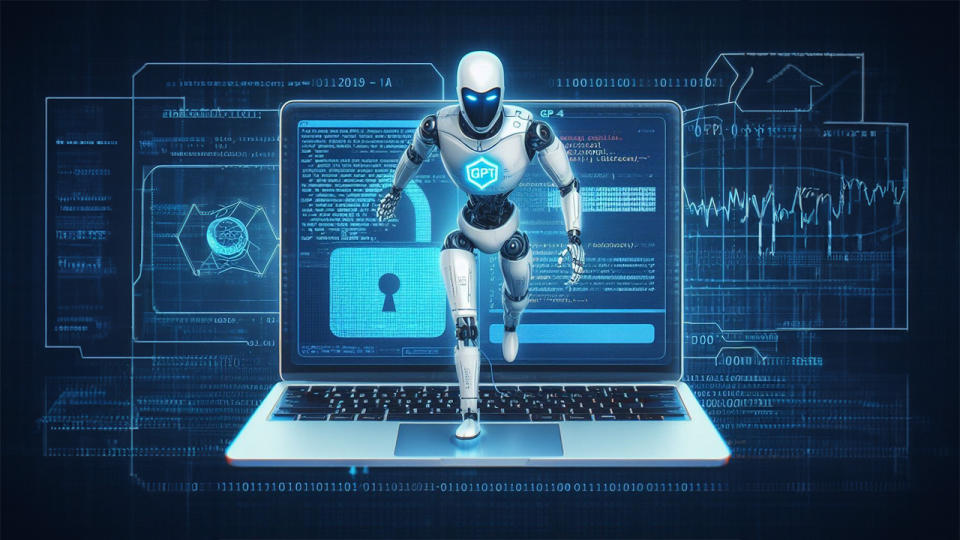Despite claims of generative AI being a fad, it could automate 54% of banking jobs — OpenAI's GPT-4 already outperformed seasoned analysts in predicting financial trends

What you need to know
A new report suggests AI could potentially take over more jobs, this time affecting the banking sector.
According to the study, 54% of banking jobs (more than half) have a high affinity for automation, with the possibility of 12% being augmented by AI.
Upskilling in AI seems like a sure-proof way to secure jobs, but privacy and security remain a major concern.
Microsoft's Work Trend Index report states AI has created more jobs, but executives won't hire anyone without an AI aptitude.
We might be on the verge of the biggest technology revolution with AI, though there are several factors like lack of adequate power, finances, and water to push it to the next level. While it remains debatable if AI is a fad, the technology is being widely adopted.
As we speak, generative AI is already claiming jobs across various sectors, including the built environment. Microsoft Copilot and ChatGPT are great at generating detailed structural designs within seconds. But where does this leave the need for architects and interior designers in the job market? Interestingly, these AI-powered chatbots can generate sophisticated structural designs but fail at simple tasks like creating a plain white image.
Be it as it may, the AI revolution is on course. According to a new study by Citigroup, the banking sector got next on AI's chopping board. The study further indicates that 54% of banking jobs (more than half) have a high affinity for automation. What's more, 12% could be augmented by AI.
According to Citigroup:
“GPTs have the potential to transform entire economies, changing the way we live and work. They create new opportunities for growth and innovation, often improving our overall quality of life. They also destroy existing ways of doing things. And as such they also create losers. Especially in the short term.”
The banking sector isn't the only one at risk with the prevalence of AI. The cutting-edge technology might claim jobs across the Insurance, Energy, and Capital sectors.
Interestingly, Microsoft's latest Work Trend Index report claims AI generates more job opportunities rather than losses, with company leads expressing concern over insufficient talent to fill vacancies. However, most recruiters won't hire anyone without an AI aptitude, prompting "a 142x increase in LinkedIn members adding AI skills like Copilot and ChatGPT to their profiles."
The next wave for AI, but is security and privacy guaranteed

NVIDIA CEO Jensen Huang claims we might be on the verge of the next wave of AI. Huang says advancements in the AI landscape are well beyond chatbots. The next wave will champion humanoid robots and self-driving cars.
In a separate interview, the CEO discouraged the next generation from exploring coding as a career option. He added it might be dead in the water with the prevalence of AI, and that they are better off exploring opportunities in other fields, including biology, education, manufacturing, or farming. Huang might be onto something with the emergence of 'magical' flagship models like OpenAI's GPT-4o, which is exceptionally great at writing and detecting errors in code.
Similarly, OpenAI's GPT-4 (also referred to as mildly embarrassing at best and kind of sucks) was recently spotted outperforming professional analysts and advanced AI models in forecasting future earnings trends.
Upskilling in AI seems like a fireproof way to assert job security. However, what will happen when AI becomes smarter than humans? While we ponder the possible outcomes, will you be comfortable letting AI handle or access your bank records and finances amid security and privacy concerns?
According to Citigroup's CTO, David Griffiths:
“The pace of adoption and impact of Gen AI across industries has been astounding as it becomes clear that it has the potential to revolutionize the banking industry and improve profitability.”
The adoption of AI in the banking sector will grow its profit margin by 9%, which translates to $170 billion. The study says this will push the profits from $1.7 trillion to a cool $2 trillion.
Windows Recall is perhaps Microsoft's most controversial feature yet. Though the company promised 100% privacy-focused, users didn't seem to buy that running on-device on the new Copilot+ PCs is enough to keep their confidential data away from prying eyes and bad actors.
Privacy and security concerns raised by users attracted attention from the UK data watchdog, prompting Microsoft to recall Windows Recall to address some critical issues.
While Citigroup's report doesn't categorically state that AI will take over or handle tasks that involve accessing personal banking credentials, it sparks the thought that we might potentially get to this stage.

 Yahoo Finance
Yahoo Finance 